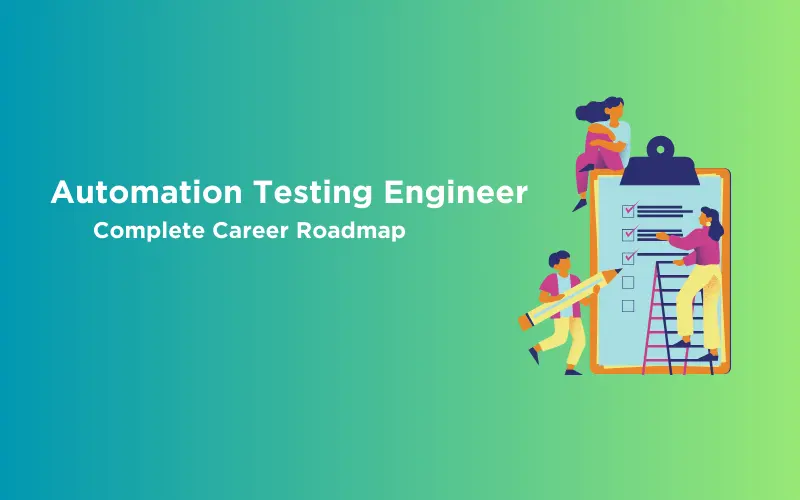
How to Become an Automation Test Engineer – Complete Career Roadmap
Apr 01, 2025 6 Min Read 4145 Views
(Last Updated)
Have you ever wondered how your favorite apps work so smoothly? That’s where “automation testing” comes in. It’s like having a super-smart helper who checks software for problems super quickly. Let’s discover how you can become this helper!
As apps and software become a big part of our lives, making sure they work perfectly is crucial. Automation testing is like a superhero that finds mistakes in software. Companies need experts in this, which means cool job opportunities for you.
We’ll guide you on how to become an Automation Test Engineer. Don’t worry, it’s not too technical. We’ll talk about the skills you need, how to learn them, and how to shine in this exciting field.
By the end, you’ll know how to be a superhero in the world of software testing. Let’s dive in!
Table of contents
- Understanding Automation Testing
- Significance in Software Development
- Difference from Manual Testing
- Benefits of Automation Testing
- Skills Required for Automation Test Engineers
- Technical Skills
- Non-Technical Skills
- Education and Learning Path
- Typical Educational Background
- Continuous Learning and Industry Trends
- Gaining Practical Experience
- Importance of Hands-On Experience
- Ways to Gain Practical Experience
- Building a Strong Foundation
- Importance of Software Development Life Cycles
- Understanding Testing Methodologies (e.g., Agile, Scrum)
- Significance of Quality Assurance Principles and Best Practices
- Networking and Industry Involvement
- Connecting with a Purpose
- Getting Involved
- Job Search and Career Growth
- Crafting a Strong Automation Testing Resume
- Entry-Level Job Roles
- Career Growth Path
- Interview Preparation
- Brushing Up on Programming Skills
- Practicing Solving Coding Challenges
- Reviewing Automation Testing Concepts and Tools
- Conclusion
- FAQs
- What exactly is automation testing, and why is it important in the software industry?
- What skills do I need to become an Automation Test Engineer?
- How can I start my journey to become an Automation Test Engineer, even if I'm just starting out?
Understanding Automation Testing
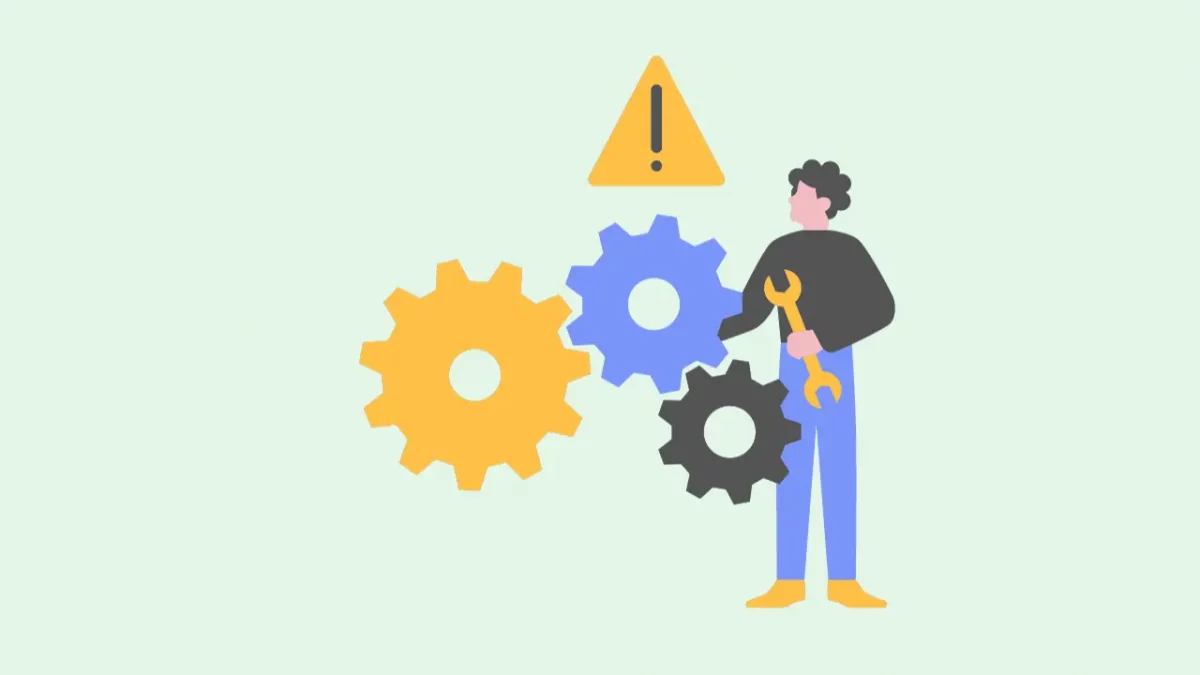
Automation testing is like having a digital assistant that tests software automatically, without needing constant human input. It’s like a super-fast checker that makes sure the software works correctly.
Significance in Software Development
Imagine building a puzzle. Automation testing is like checking if all the pieces fit perfectly without having to do it by hand. It’s a vital step in making sure software is high-quality and doesn’t have hidden errors.
Difference from Manual Testing
Manual testing is like reading a book word by word to find errors. Automation testing is like using a smart robot to read the book for you and point out any mistakes. It’s much faster and more accurate than manual testing.
Benefits of Automation Testing
Efficiency: Automation testing works quickly, testing lots of things at once. This speeds up the whole testing process.
Accuracy: Computers don’t get tired or make mistakes from repeating tasks. So, automation testing is super accurate.
Repeatability: You can use the same automated tests over and over again, making sure the software is always in good shape.
Automation testing is a super helper that checks software automatically, catching mistakes fast, accurately, and repeatedly. It’s like the superhero of software testing for quality assurance!
Skills Required for Automation Test Engineers

Technical Skills
Programming Languages: Being good at languages like Python, Java, and JavaScript is like having a toolbox full of tools. You use them to write codes that make the testing magic happen.
Test Automation Frameworks: Imagine having a cool gadget that helps you do your job better. That’s what frameworks like Selenium, Appium, and Cypress are for automation testers. They’re like shortcuts that help you test software faster and smarter.
Version Control Systems: Think of this like a magic spell that keeps track of all the changes made to the software. Git is a popular spell that lets you collaborate with others and keep everything organized.
Non-Technical Skills
Attention to Detail: Think of yourself as a detective looking for hidden clues. Having a sharp eye for detail helps you catch even the tiniest bugs in the software.
Problem-Solving Abilities: Software is like a puzzle. Bugs are the pieces that don’t fit. Being good at solving puzzles helps you find and fix those pieces.
Communication and Collaboration: Imagine you’re on a team. Good communication is like a superhero power that helps you work together smoothly. You need to explain issues, discuss solutions, and share progress with your team.
Automation Test Engineers need technical skills like programming, using automation tools, and version control. But it’s not just about computers – skills like paying attention to details, solving problems, and working well with others are just as important. It’s like having a toolbox full of skills to make sure the software is top-notch!
Education and Learning Path

Typical Educational Background
Computer Science: Think of it as the foundation of your tech knowledge. Learning about how computers work, algorithms and data structures can be super helpful.
Software Engineering: This is like learning how to build amazing things with code. You’ll get a deeper understanding of programming and how to create software from scratch.
Information Technology: IT is like knowing all the tricks to make technology work smoothly. It’s a great background to have for understanding how software fits into the bigger tech picture.
Continuous Learning and Industry Trends
Just like technology keeps evolving, your learning journey doesn’t stop after school. Staying curious and open to new things is like having a map to explore new territories.
The software world changes fast. What’s cool today might be old news tomorrow. So, keeping up with the latest trends and tools is like having a time-traveling compass.
A background in Computer Science, Software Engineering, or Information Technology can set you up well. But remember, the learning never stops. Online platforms like Coursera, Udemy, and LinkedIn Learning are like magic potions for continuous learning. And don’t forget the power of online communities and YouTube for learning and staying updated!
Gaining Practical Experience
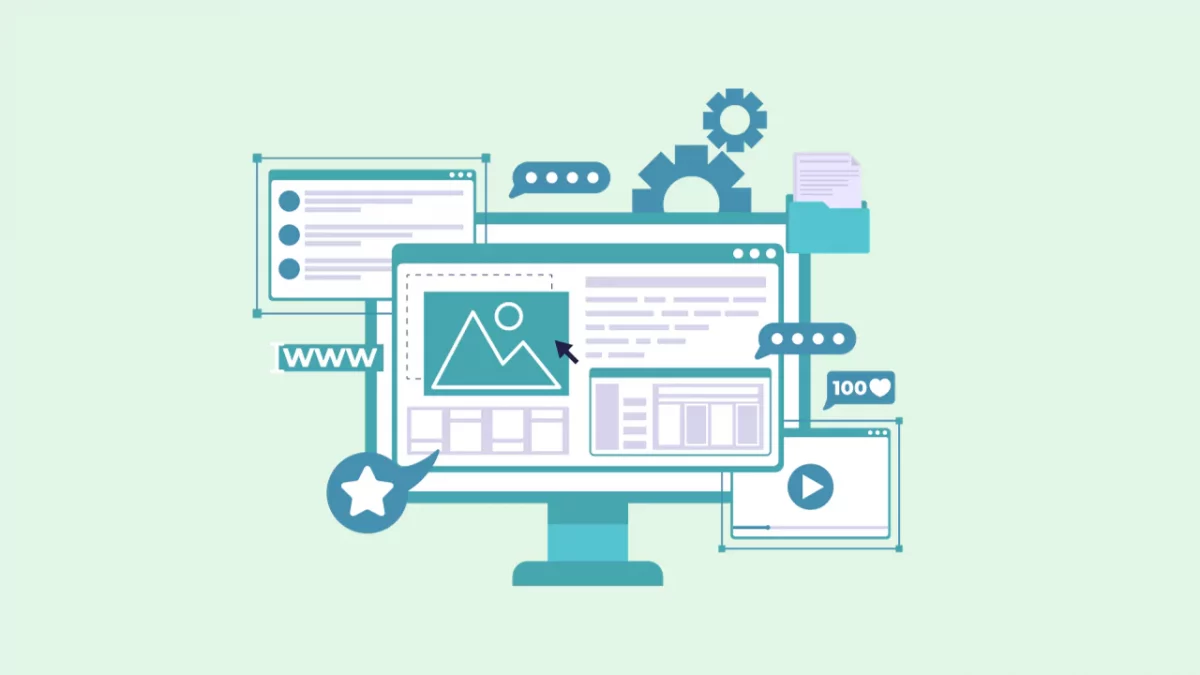
Importance of Hands-On Experience
Think of learning to ride a bike. Reading about it is one thing, but riding teaches you much more. Similarly, hands-on experience in automation testing helps you truly understand how things work in the real world.
Ways to Gain Practical Experience
1. Internships or Co-op Programs
This is like getting a backstage pass to the software world. Joining a company as an intern or through a co-op program lets you see how professionals use automation testing in their daily work.
You’ll learn from experts, work on real projects, and gain insights into the industry. It’s like a crash course in real-world automation testing.
2. Personal Projects and Open-Source Contributions
Imagine you’re an artist. The more you paint, the better you get. The same goes for automation testing. Working on your projects or contributing to open-source projects is like practicing your skills.
It shows potential employers that you’re proactive and passionate about automation testing. Plus, it’s a playground to experiment and learn.
3. Creating a GitHub Portfolio
Think of GitHub as your online showcase. When you contribute to projects, create mini-projects, or even share solutions to common problems, you’re building a portfolio.
It’s like having a colorful collection of your work that you can proudly show to future employers. They’ll see your skills in action.
Hands-on experience is like adding a practical touch to your theoretical knowledge. Internships, personal projects, and GitHub portfolios are like your secret weapons to becoming a confident Automation Test Engineer. Remember, practice makes perfect!
Building a Strong Foundation
Importance of Software Development Life Cycles
Imagine building a house. You don’t just start hammering nails randomly. There’s a plan, step by step. Similarly, software development follows a life cycle, which is like a roadmap.
Understanding these cycles, like planning, coding, testing, and deploying, helps you see the bigger picture. It’s like being the architect of quality software.
Understanding Testing Methodologies (e.g., Agile, Scrum)
Testing is like taste-testing a cake at different stages of baking. Agile and Scrum are like recipes for baking software. They break the big process into small, manageable chunks.
Learning these methodologies helps you know when to test, what to test, and how to adapt quickly. It’s like having a secret recipe for success.
Significance of Quality Assurance Principles and Best Practices
Imagine being a judge in a talent show. Quality assurance is like making sure only the best performers get on stage. It’s about ensuring the software is top-notch.
Knowing best practices, like thorough testing, bug tracking, and maintaining clear documentation, is like wearing a quality control hat. It’s your stamp of approval on the software’s quality.
Understanding software life cycles is like being the conductor of an orchestra – you lead the process smoothly. Learning testing methodologies is like having a map for the journey.
Mastering quality assurance principles is like becoming the software guardian, ensuring it’s the best it can be. It all comes together to create a strong foundation for your automation testing skills!
Networking and Industry Involvement

Connecting with a Purpose
Imagine you’re on a treasure hunt. Networking is like finding fellow adventurers who share the same quest. In the software testing world, networking is your key to uncovering hidden gems of knowledge and opportunities.
Getting Involved
Attending Conferences, Meetups, and Webinars
Conferences are like gatherings of experts sharing their secrets. Meetups are like cozy hangouts with fellow testers. Webinars are like online classes where you learn from the best.
Going to these events is like opening doors to new friendships and learning experiences.
Participating in Online Forums and Communities
Think of online forums as a giant chatroom where testers from all over the world come to share their wisdom. Communities are like your virtual club where you can learn, ask questions, and help others.
Engaging in these spaces is like joining a team of testers who have your back and want to see you succeed.
Networking is like joining a club of fellow treasure hunters. Attending events and participating in online spaces helps you make friends, learn from experts, and share your knowledge. It’s like adding new tools to your tester’s toolbox!
Job Search and Career Growth
Crafting a Strong Automation Testing Resume
Think of your resume as your introduction to potential employers. Highlight your technical skills, certifications, and hands-on experience in automation testing.
Include your achievements, such as successful projects or any contributions to open-source software. It’s like showcasing your best work.
Entry-Level Job Roles
Junior Test Engineer
Imagine you’re an apprentice learning from the experts. As a junior, you’ll work closely with experienced testers, helping them test software and learn the ropes.
It’s like stepping into the world of automation testing with guidance and support.
QA Automation Intern
Picture yourself as a trainee in a real-world testing lab. As an intern, you’ll assist in automation tasks, learn from professionals, and gain practical experience.
It’s like getting hands-on exposure while building your skills.
Career Growth Path
Test Engineer
After gaining experience, you become a full-fledged Test Engineer. It’s like becoming a skilled musician who knows how to play different instruments.
You’ll work on more complex projects, lead testing efforts, and mentor junior team members.
Senior Automation Test Engineer
Imagine becoming the lead guitarist in a band. As a senior, you’ll take charge of automation strategies, design test frameworks, and tackle challenging projects.
It’s like being the go-to expert in automation testing.
Automation Test Lead
Now you’re the conductor of the orchestra. As a test lead, you’ll manage teams, coordinate testing efforts, and ensure quality across projects.
It’s like having a big role in shaping the testing process of an entire project.
Craft a resume that showcases your skills and achievements. Start as a junior or intern, learning and growing. Then, progress from Test Engineer to Senior Automation Test Engineer, and potentially, to Automation Test Lead. It’s like climbing the ladder of success in the world of automation testing!
Interview Preparation

Getting Ready for the Big Moment
Think of an interview as a performance on a big stage. To shine, you need to prepare and practice. Here’s how you can rock your automation testing job interview!
1. Brushing Up on Programming Skills
Just like a musician practices scales, you should refresh your programming skills. Review coding languages you know, and be ready to explain how you’ve used them in testing scenarios.
It’s like tuning your skills to be interview-ready.
2. Practicing Solving Coding Challenges
Imagine you’re a puzzle master. Coding challenges are like puzzles you need to solve on the spot. Platforms like LeetCode and HackerRank offer tons of practice problems.
Solving these challenges is like flexing your problem-solving muscles.
3. Reviewing Automation Testing Concepts and Tools
Think of this like studying for a test. Review the basics of automation testing, testing frameworks like Selenium, and any other tools you’ve used.
It’s like refreshing your memory on important topics.
Preparing for an interview is like rehearsing for a show. Brush up on programming, practice coding challenges, and review automation testing concepts. With practice, you’ll walk into the interview room feeling confident and ready to impress!
Conclusion
Automation testing is like having a super helper check software automatically. Learning programming and using special tools are important skills. Getting hands-on experience, Selenium Automation Testing Course, and meeting other testers are key.
Like a hero, being a test engineer needs learning and never giving up. Keep exploring new things and facing challenges.
The software world is exciting and always changing. If you like making software better, this is the perfect job for you. Catch bugs, improve things, and join others who care about software quality.
So, get ready to start. You’ll learn, grow, and make software awesome. Your adventure as an Automation Test Engineer is about to begin – go ahead and do great things!
FAQs
Automation testing is a method where special software tools automatically perform tests on software applications to check their functionality, performance, and reliability. It’s like having a super-smart helper that quickly and accurately finds bugs and issues in software.
Automation testing is crucial because as software becomes more complex, manual testing alone isn’t efficient enough. Automation speeds up testing processes, improves accuracy, and ensures high-quality software is delivered to users.
To become an Automation Test Engineer, you need a mix of technical and soft skills. Important technical skills include knowing programming languages like Python, Java, or JavaScript, being familiar with testing frameworks like Selenium, and understanding version control systems like Git.
On the softer side, attention to detail, problem-solving abilities, and strong communication skills are vital. You also need to continuously learn and stay updated with the latest trends and tools in the field.
Starting your journey is exciting! Begin by learning the basics of programming and testing concepts. Look for online resources, courses, and platforms like Coursera, Udemy, and LinkedIn Learning. Practice coding challenges to enhance your problem-solving skills.
Consider creating personal projects or contributing to open-source projects to gain practical experience. Attend conferences, meetups, and webinars to network with professionals in the field. Remember, dedication, continuous learning, and hands-on experience will pave the way to becoming a successful Automation Test Engineer.







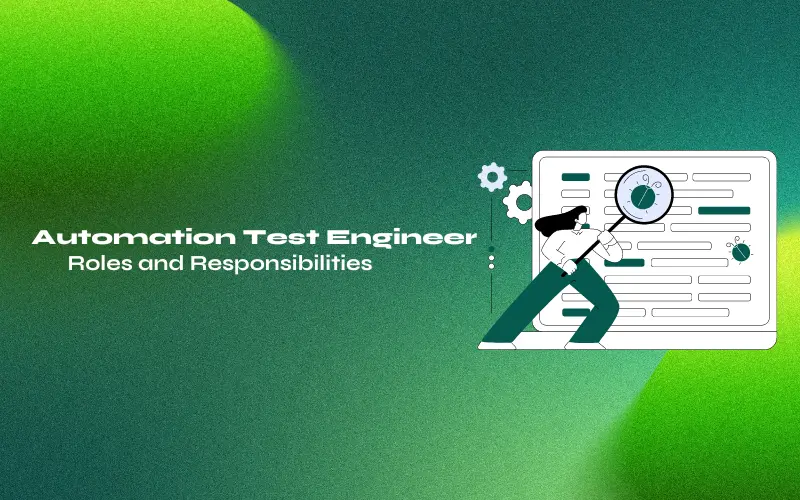



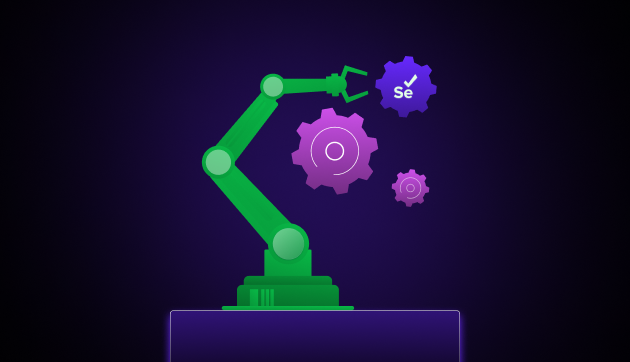

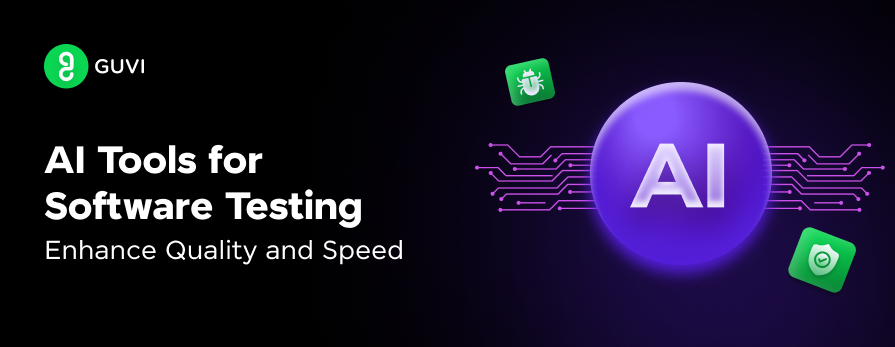
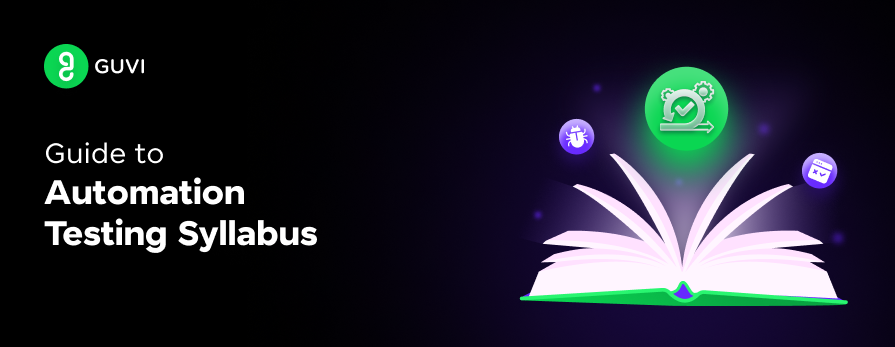

Did you enjoy this article?